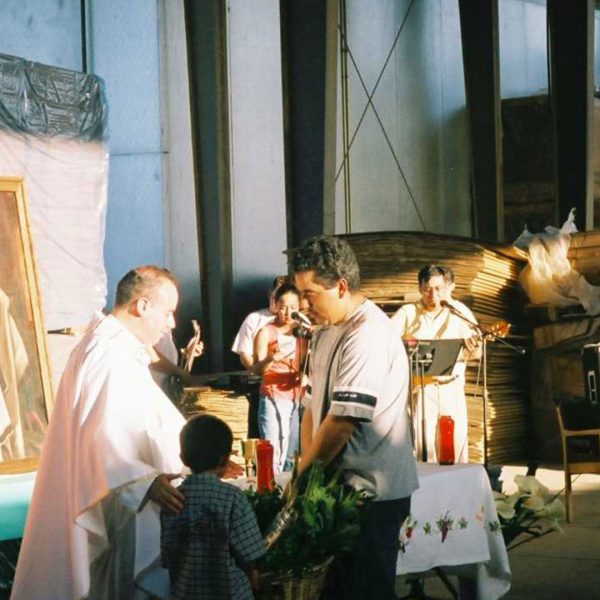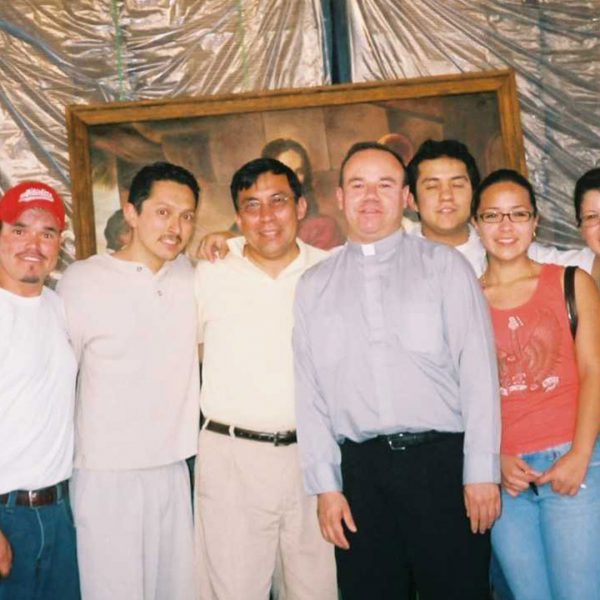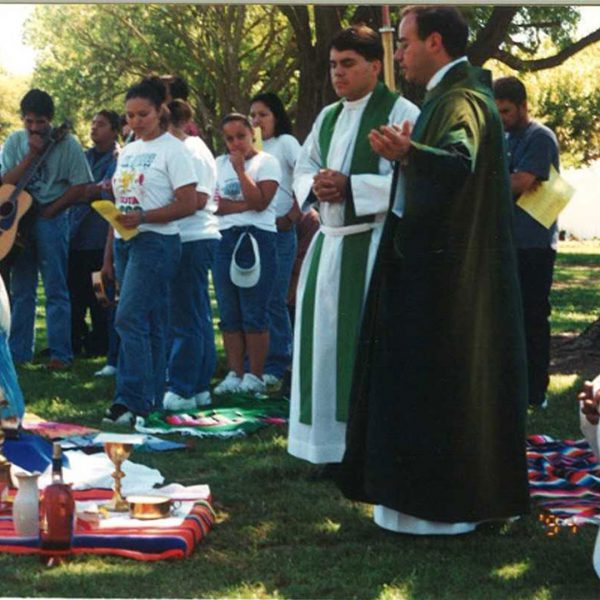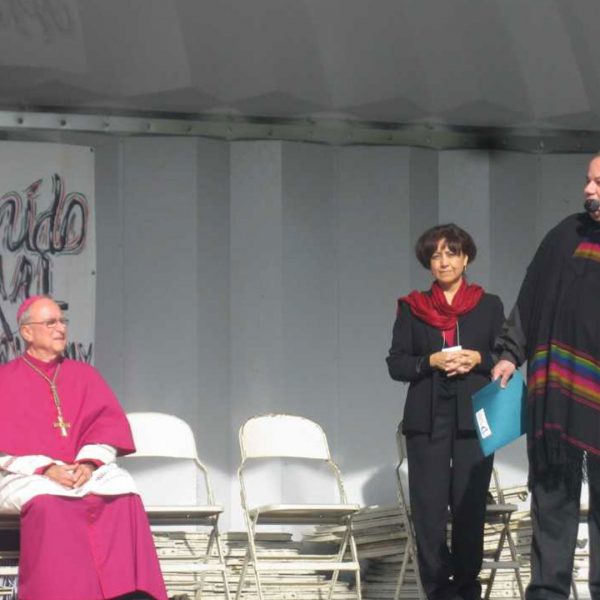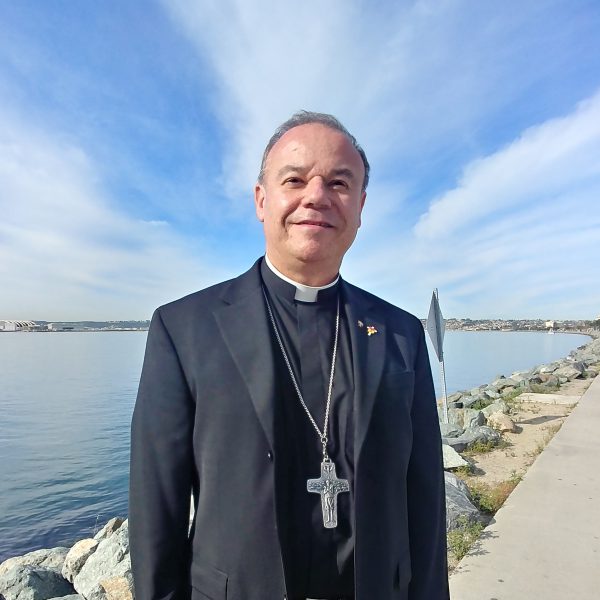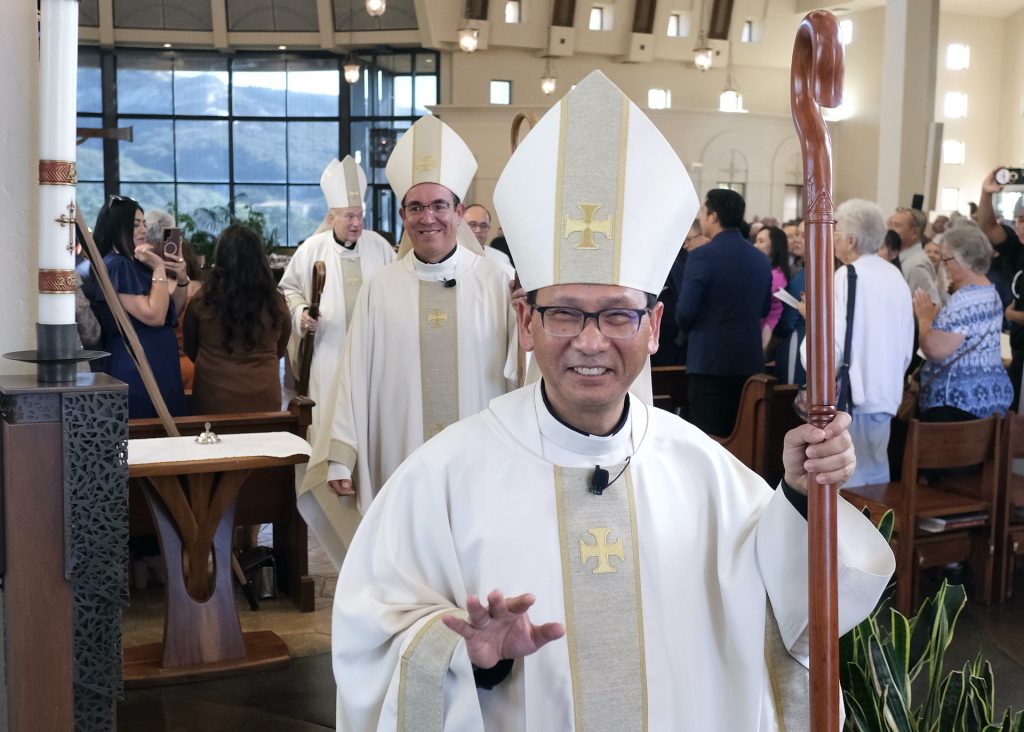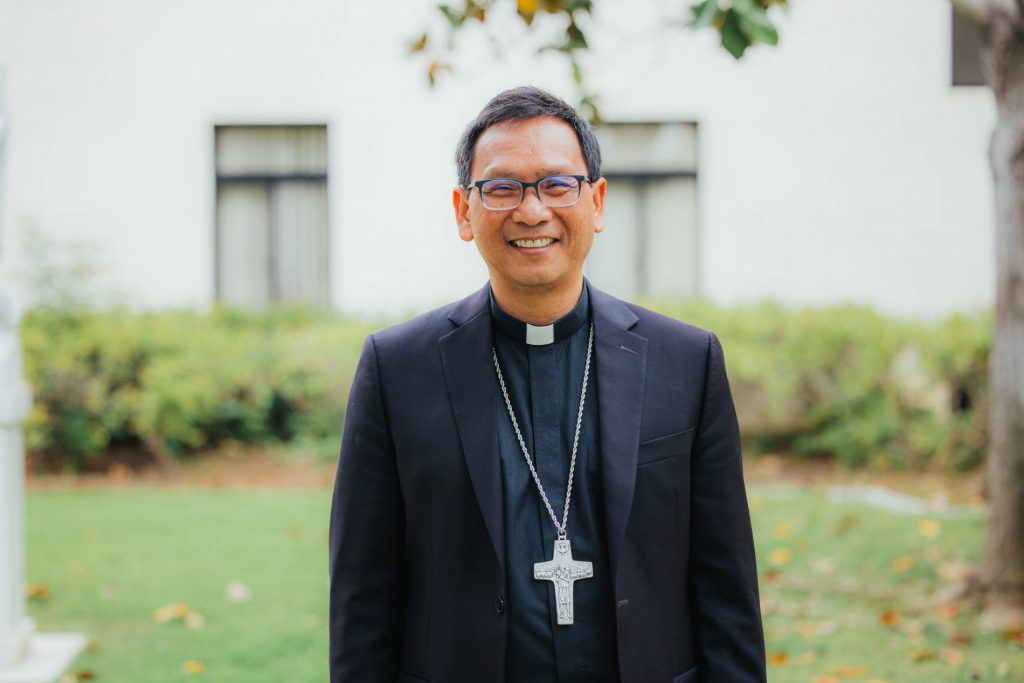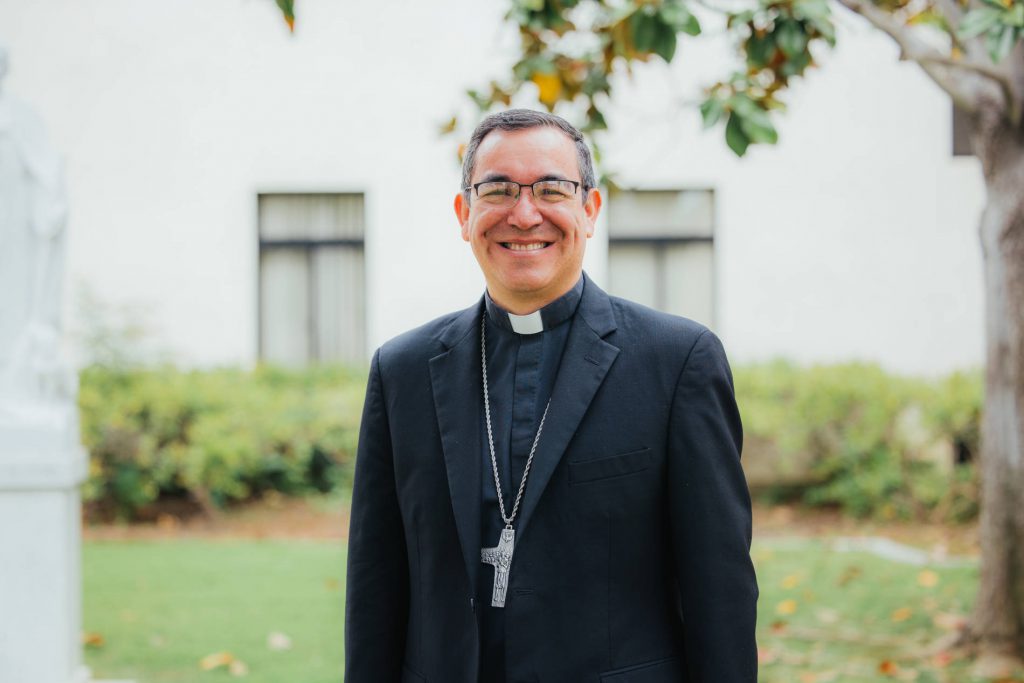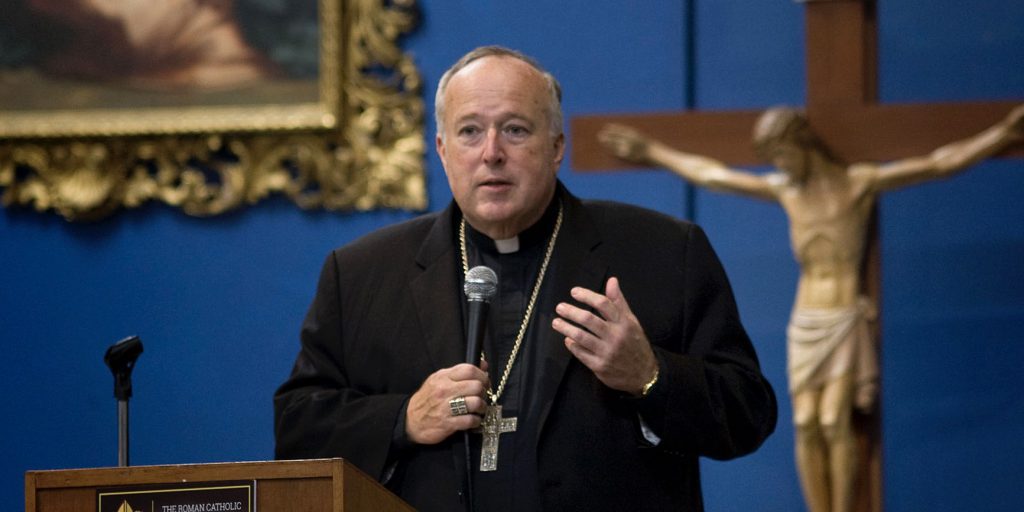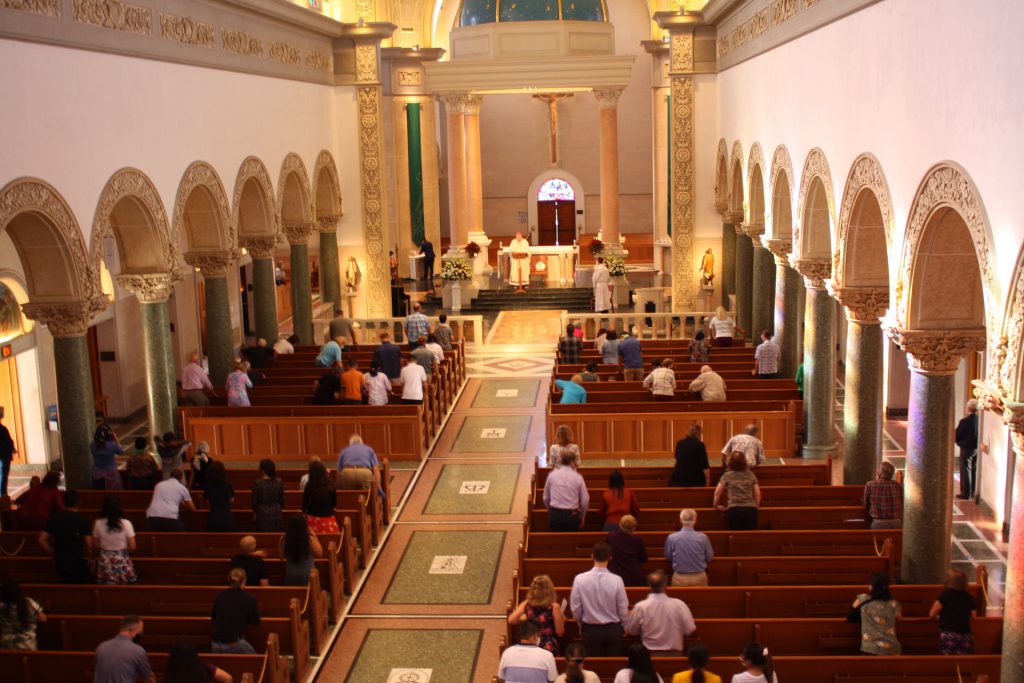SAN DIEGO — Ramón Bejarano wanted to be a priest since he was 7 years old.
His grandmother would take him to the parish of the small town where he grew up, Aldama, in the Mexican border state of Chihuahua.
“Becoming a bishop?” he asked. “I never thought about it.”
These days, he’s more than thinking about it. He’s getting used to a new title and much more. Pope Francis named him auxiliary bishop of the Diocese of San Diego on Feb. 27, joining the leadership team of Bishop Robert W. McElroy and Auxiliary Bishop John P. Dolan. Sometime after Easter, he will leave the Stockton area, where he has served as a priest for 21 years, and take up residence in his new home. His ordination will occur after the COVID-19 restrictions are lifted.
In announcing his appointment, Bishop McElroy shared how he had first encountered Father Bejarano three years ago.
“I first met him at a pastoral conference in Modesto where the late Stockton Bishop Stephen Blaire told me, ‘Ramón is one of our finest priests, with a shepherd’s heart, the zeal of missionary discipleship, and an intuitive ability to nurture and heal the souls of his people. I pray that some day he might be the first priest of Stockton to become a bishop.’
“Now that prayer has become realized, thanks to the pastoral care of our Holy Father, Pope Francis, the entire Catholic community of Stockton, led by Bishop Myron Cotta, and the faith and love of Ramón’s parents and brothers and sister.”
Bejarano will become only the second Hispanic auxiliary bishop in San Diego. Auxiliary Bishop Gilberto Chávez, who died on March 15, served in that capacity for 33 years before retiring.
He brings to the local diocese his vast experience in ministering to the diverse populations of the Stockton region, home to Filipino, Vietnamese and Portuguese populations, in addition to the predominately working-class Hispanic community. And he brings his experience in diocesan leadership positions, which includes serving on the Presbyteral Council, the Diaconate Board, and the Preparatory Commission for the Diocesan Synod of 2005.
Father Bejarano, 50, was born in Seagraves, Texas, on July 17, 1969, the son of José and María Elena Bejarano. His family moved back to Mexico soon after his birth, and he spent his early life in Aldama, where his father worked in agriculture.
When he was 18 years old, his parents decided to return to the United States, settling in the small city of Tracy, in the San Joaquin Valley.
The ensuing two years would shape his adult life. In Tracy, he found work to help support his family. His first job was sorting tomatoes in the field during the night shift, which lasted 10 to 12 hours.
“That first night I remember the smell of the tomato plants was so strong I felt like throwing up,” he recalled in an interview. “For a time afterward, I really didn’t want anything to do with tomatoes.”
After the season ended, he landed a job working in maintenance at a hotel, where he worked about a year and a half. That, too, gave him an appreciation for the tough job these workers do, whether in the fields or in the service sector.
“These jobs are arduous, exhausting,” he said. “And these workers don’t have the resources that many of us do, the chance to get an education, to get medical care. We have to support them. Most of all, we should be grateful for them.”
The young man who arrived in Tracy did another thing immediately.
He found the local parish, St. Bernard, where he started attending Sunday Mass and joined the Hispanic youth group. He had served as a lector in Mexico, and volunteered to serve in the same role in that parish.
After two years of this, he said, he began to ask himself, “What does God want me to do?”
The answer he discerned led him to knock on the doors of the Stockton Diocese to apply to be a seminarian. He studied philosophy at the Archdiocesan Seminary of Tijuana and then completed his theological studies at Mount Angel Seminary in Oregon.
He was ordained to the priesthood by the Most Rev. Donald Montrose on Aug. 15, 1998, for the Diocese of Stockton.
He served as parochial vicar in the parishes of St. George in Stockton and Sacred Heart in Turlock. He was called in 2005 to be the founding pastor of Holy Family Parish in Modesto. He served as pastor of St. Stanislaus Church in Modesto from 2008 to 2019, when he was named the pastor of the Cathedral of the Annunciation in Stockton. He was there barely four months when Pope Francis named him to be the auxiliary bishop of San Diego.
In the late 1980s, José López Ceja was a volunteer in youth ministry for the Stockton Diocese when he met the young Bejarano.
López recalled that the youth group that Bejarano belonged to would visit the migrant farmworker camps in the area to bring them a touch of the faith, especially around Easter.
In 2001, the Stockton Diocese opened an Office of Migrant Ministry, and Father Bejarano served as its spiritual director. He was at St. George Parish in Stockton, which served two camps for migrant workers and their families. Together, the camps housed 180 families for six months a year.
He would celebrate Masses at the camps and bring the sacraments, such as confirmation and First Communion, to the families.
The children of the farmworkers attended school while there but would fall behind because they had to leave in October as their parents’ field work shifted to Oregon and Washington.
Father Bejarano set out to find a solution. He worked with government officials, community organizations, farm owners and even some skeptical farmworker parents to develop a plan allowing families to arrive at the camp earlier in the year and leave in December.
“This greatly benefitted our young people because they could finish their school year,” Father Bejarano recalled.
López is now the director of Youth Ministry and Hispanic Youth and Young Adult Ministry at the Stockton Diocese. He’s worked alongside Father Bejarano for more than 30 years. This is how he describes him simply:
“Father Ramón has always been very focused, very helpful. He’s always been a man of the people, never acting like he’s above them.”

